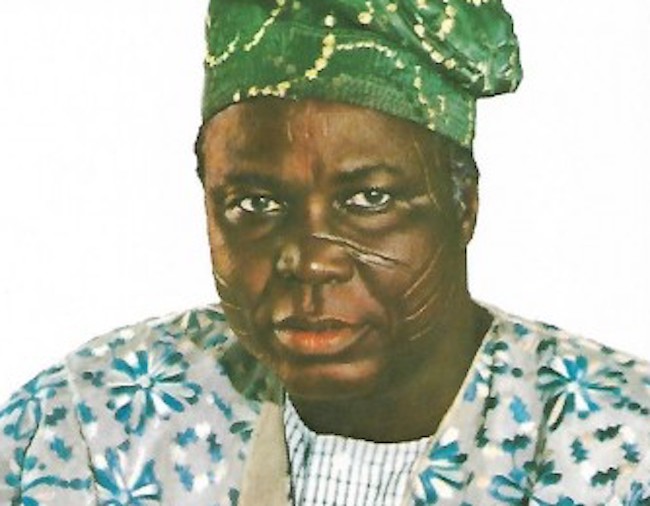By Dotun Oyelade
Due to the deliberate strategy, the history and achievements of Chief Ladoke Akintola, the former and last Premier of the Western region, cannot stand on its own. His achievements had to be subsumed by the Western region crisis and his disagreement with Chief Obafemi Awolowo, his leader and predecessor in office.
This needn’t be so because the Western region crisis apart, Akintola recorded many outstanding achievements for the region as a federal parliamentarian, minister and Premier between December 1960 and January 1966 when he died.
There’s a lot of literature published about the Western region crisis, and I do not desire to regurgitate all that has been written because all of them are in the public domain. Rather, I wish to interrogate what Akintola meant to history through his verifiable achievements and vision while in government, and indeed what lessons can be gleaned by the contemporary and coming generations.
To be sure, Akintola and Awolowo were a political Siamese twin and their combination was made in heaven. One was exactly what the other was not. Indeed, Awolowo conceded political grandstanding to Akintola, because, while Akintola was given with the gift of the garb, Awolowo was taciturn and a little bit distant.
In 1960, when both of them landed at Ogbomoso, together in a helicopter, the first thing I observed, as an eight-year-old inquisitive boy was their sartorial elegance. While Akintola disembarked from the chopper in woolly kembe, danshiki and agbada, Awolowo followed him in a transparent white lace flowing agbada, over a chocolate velvet buba. I took notice of the brown balley shoes both of them were wearing and their leather wristwatches.
Akintola would whip up raw emotion, with his alliterative and sarcastic remarks that combine verbal imagery and mimicry and while Awolowo’s follow-up remarks were not an outright anticlimax, he would succeed in sombering up the mob with convincing data and science, the way a strict headmaster would conduct himself.
A politician was once quoted as saying, ‘If you don’t want to be convinced or swayed to the other side, do not allow Akintola to speak to you.’ Since the beginning of politics in Nigeria, to date, there has never been a more successful political combination like the two gladiators.
To my mind, Akintola’s major offence at the time was being a pragmatic politician. He did not deceive himself that Awolowo’s success as a regional administrator could translate into realising his ambition as the Prime Minister of Nigeria.
He was quoted as advising his boss, Awolowo, that his political clout would not match his ambition unless there was a handshake across the Niger. Not once did Akintola query the leadership of his boss and was ready to deploy his deep understanding of the Hausa language and northern affiliation to fester the ambition of his boss. But as it turned out, when he had his back to the wall, he deployed the same asset to protect himself.
Akintola was a nationalist to the core, experienced and versed in the tenuous craft of give-and-take.
As the Editor of The Daily Service, he had a bitter engagement with his colleague, Dr Nnamdi Azikwe, Editor of the West African Pilot, among others and both sheathed their swords the moment they left journalism for politics.
Akintola might have had the opportunity to march Awolowo’s own achievement between 1952 and 1960 if not for the internal crisis that bugged him down. He was well prepared for the job of premiership.
He was the first Minister of Labour for the federation, a portfolio he chose for himself because of his interest in labour matters. He later moved on to be Minister of Health and later still, Communication and Aviation.
His loyalty to his boss and party throughout this period was never in doubt and when in April 1953 it became incumbent for all Action Group ministers to vacate their positions at the federal level, he did not blink an eye and resumed his position immediately as the leader of the opposition in the federal parliament.
One begins to wonder why Awolowo’s achievements are so amplified while that of Akintola should be a footnote. It is on record that as the federal Minister of Health, Akintola played a pivotal role in the establishment of the University Teaching Hospital Complex, Ibadan. In his capacity as the health minister, he was able to release the sum of £10m to aid the completion of UCH. As a result of that lifeline, UCH was relocated from Adeoyo Hospital to its permanent site in 1956.
In 1957, when he was reappointed to the federal cabinet and was the Minister of Communication and Aviation, he realised one of his dreams by breaking the monopoly of British Airways with the establishment of the Nigerian Airways. The Federal Government sent him to Holland to source new airplanes for the newly established Nigerian Airways.
To this day, it is still a mystery that the establishment of the University of Ife in 1961(now Obafemi Awolowo University) was never credited to Akintola who at the time was not only the Premier of the Western region, but also the Visitor to the university and one of those at the frontline of establishing the university while he was deputy Premier.
Equally baffling is the refusal to credit Akintola with the establishment of The Daily Sketch newspaper which was founded by the regional government on December 2, 1964, under his watch as Premier.
Similarly, when Cocoa House was formally commissioned in 1965, Akintola was still the Premier of the Western region though the project was the brainchild of the Awolowo premiership.
These oversights and many more are reasons we should believe those who say that perception is often stronger than real governance.
Oyelade is the Oyo State Commissioner for Information and Civic Orientation
In this article

